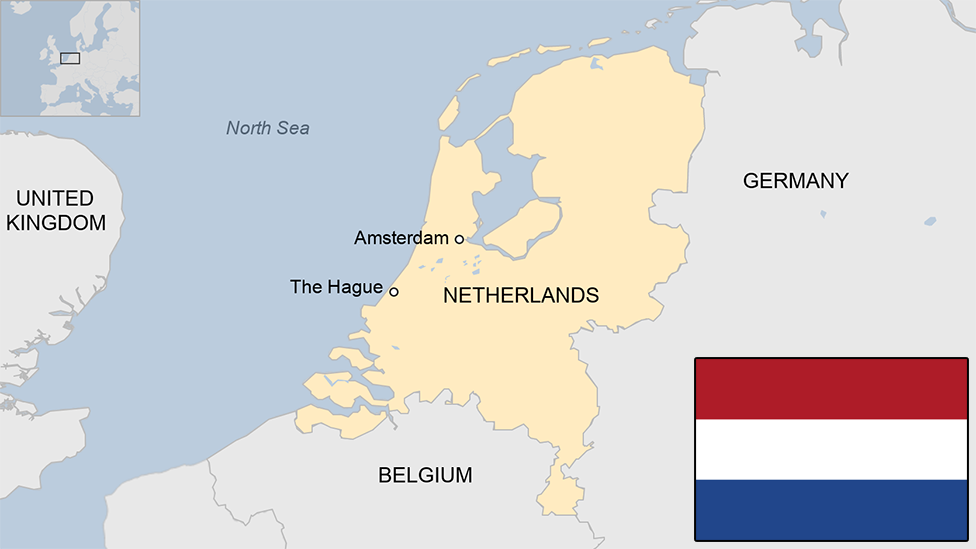Anti-European tide sweeps Dutch marshlands
- Published
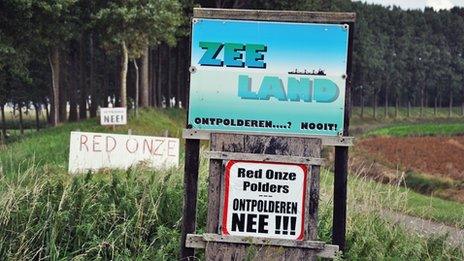
Some Dutch politicians are trying to seize on anti-European sentiment in Zeeland province, ahead of elections
A tiny area of rich farmland in the south-western Dutch province of Zeeland has become a battleground for a conflict that reflects a deepening divide in the Netherlands' relationship with Europe.
This fertile territory has been hijacked by politicians from numerous parties, seeking to strengthen support ahead of elections, by convincing a growing core of Euro-sceptic voters that they will defend the nation against unwelcome interferences from Brussels.
The Dutch were among the original architects of the European Union. A relationship signed, sealed and turned into a treaty in Maastricht in 1992 - a border town that now attracts busloads of international students hoping to soak up knowledge from the spiritual birthplace of the EU.
But a decade after the Dutch took to the streets to celebrate this historic union, this small Eurozone member is in crisis.
I spoke to one businessman, educated and frustrated, who now supports the right-wing, populist Freedom Party (PVV).
"People are paying more for their healthcare, the price of living is more expensive, people have homes they can't afford to pay for and now the government wants to put up the age of retirement so we have to work for longer. For what? So we can send our money to Greece?" he said.
"It's like throwing it on the street or giving it to a junkie or something, you know you are not going to get anything back. We are just giving, giving, giving and they are just taking, taking, taking and we cannot afford it any more."
There is a phrase "God created the world but the Dutch created Holland", a reference to the Netherlands centuries-old practice of reclaiming land from the sea.
Wrestling the water to expand farmland or building on areas of marshland to create more space to accommodate a growing population.
Hedwige Polder lies 2m below sea level. It is built on marshland and protected from the sea by resilient man-made dikes.
Under an arrangement originally proposed by the Dutch - designed to satisfy European targets to protect the habitat of migratory birds - the Hedwige Polder was supposed to be returned to the sea.
The agreement was also part of a treaty signed with Belgium to compensate for land lost through the deepening of the Westerschelde, a stretch of water connecting the port of Antwerp to the sea.
'You want to cry'
But the idea was unsurprisingly unpopular with those who now depend on the land for their livelihood.
Farmers implored the Dutch government not to bend to European demands. It is a highly emotive issue that cuts to the soul of the Dutch people's unique connection to the land.
"People used their bare hands to make this," Hans Mieras said as he waved his hands towards the flourishing fields.
"People died making this area out of the water. Now the politicians want to take it away and they're telling us to give it back to the sea. It's crazy."
The Hedwige Polder has been in Gery De Cloedt's family for generations.
"You feel that you cannot do anything and you want to cry, you want to shout. You feel that one guy with a small signature can decide everything and you feel totally powerless."
"I fight here for a long time, for eight years, my grandfather was fighting before. We fight to protect beautiful land, productive land, with beautiful animals," Mr de Cloedt added.
"Twenty-five farmers and 25 families live here. They [Brussels] would like to cancel that, to make a place full of mud. I'm fighting because I feel they are not correct and they lie."
The "lie" Mr De Cloedt is referring to is the proposal to flood the Hedwige Polder to preserve it as a marshland for the birds.
Technocrats in Brussels say they are simply trying to hold the Dutch to their original promises.
"It's the Netherlands which proposed the solution of flooding in the first place," said Joe Hennon, spokesman for the European Commission Environment.
"The commission is neutral on how they do this. We're not saying you must flood the Hedwige Polder.
"What we're saying is that you're obliged to restore the area, or the equivalent area to something which approaches a normal habitat."
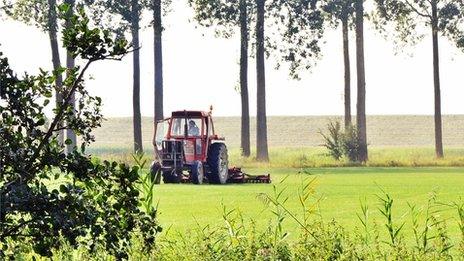
Many farmers are angry at EU-administered plans for them to relinquish land in Hedwige Polder
Sea change
Throughout the Netherlands there is a growing frustration with Europe.
The Dutch don't like the idea of bailing out other countries with money they feel they can't afford to spare at a time of crisis.
Research by the Dutch Institute of International Relations found that 48% of those questioned view the Euro crisis as the biggest single threat to the future of the Netherlands.
'People feel Brussels dictates what the Dutch can do and cannot do. And the EU is now the big baddie," the institute's EU Specialist, Wilbur Perlot, said.
"I think there is a lot of negativity about certain specific EU projects and the influence that has on Dutch culture.
"If you explain it to them: 'You know, it's nice for the environment,' a lot of them will say: 'Ah ok it might be a good idea...'
But if you say: 'It must be done by Brussels,' then majority will say: 'No way! Why should Brussels decide what to do with this polder.'"
Politicians are aware of these fears and use issues like the Hedwige Polder to illustrate what they say is Brussels' destructive influence over the traditional Dutch way of life.
'If you look at the Hedwige Polder it's a very very very small part of Holland, but still Brussels is deciding what we are doing with it," said Paul ter Linden, a candidate for the Freedom Party (PVV).
"We want to decide on our own borders, we want to decide what we are doing with our nature, with our immigration, with our money. We want to decide it for ourselves... Enough is enough."
As life gets tough and national powers are eroded, will this pragmatic nation who have battled against the tides of nature for centuries now decide it is time to distance themselves from the political and economic powers of a union they once fought to create?
Photographs by Matt Knight
- Published30 August 2012
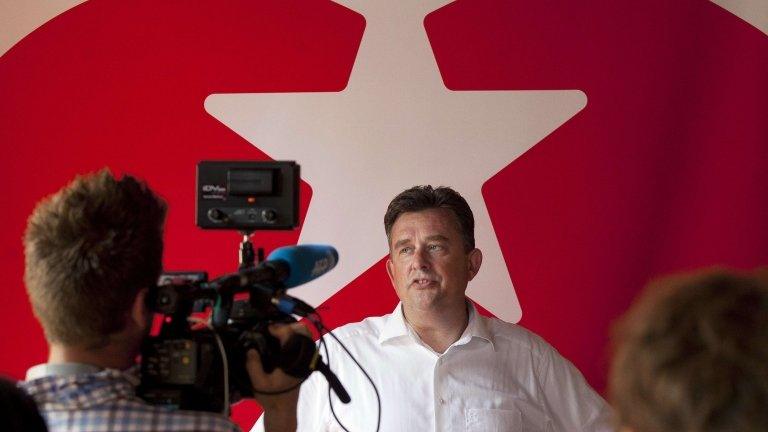
- Published11 September 2012
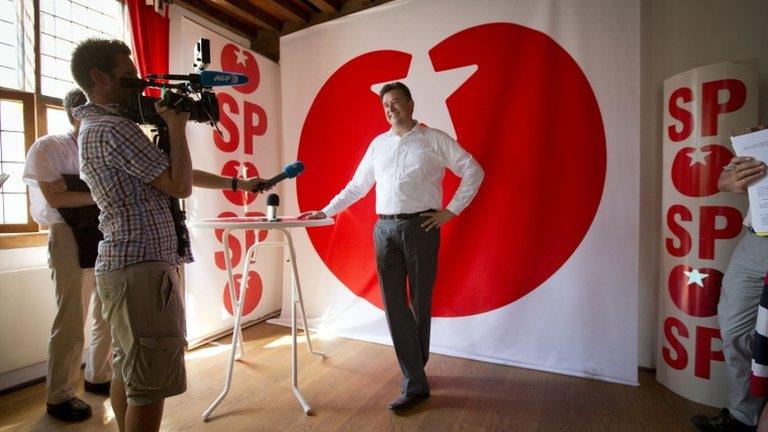
- Published2 July 2024
